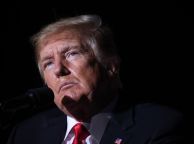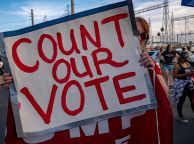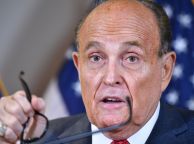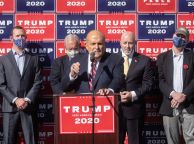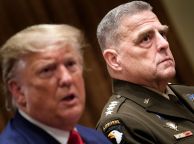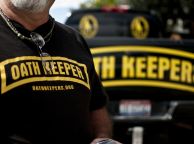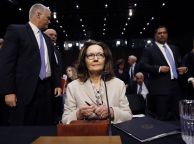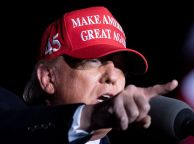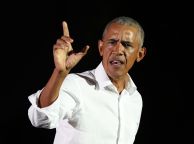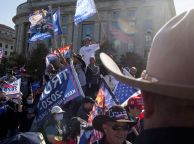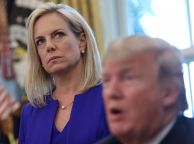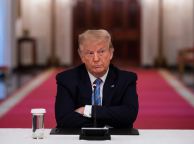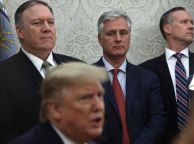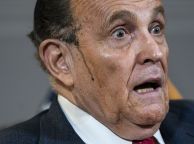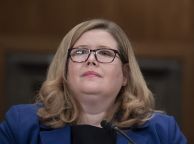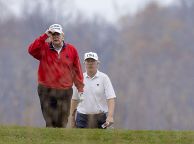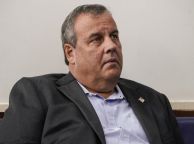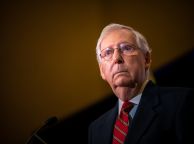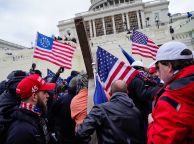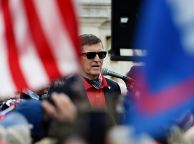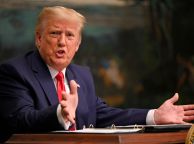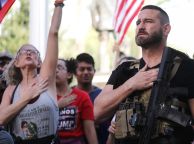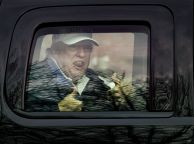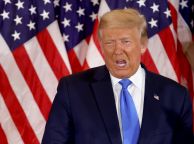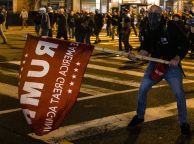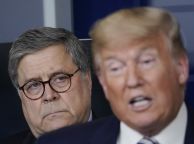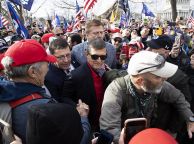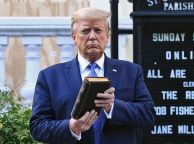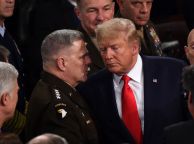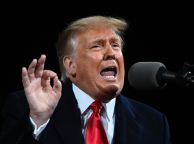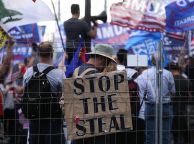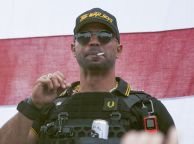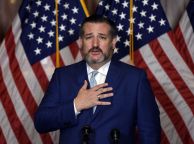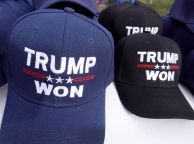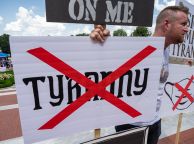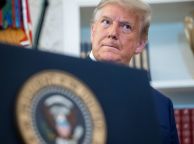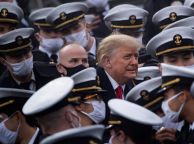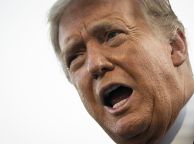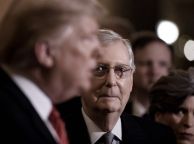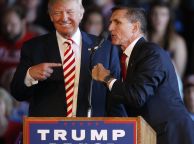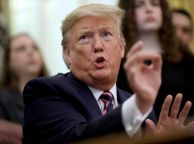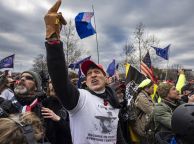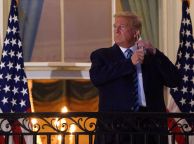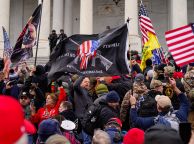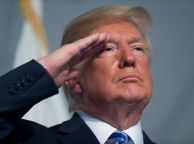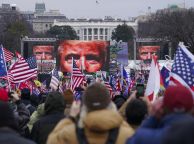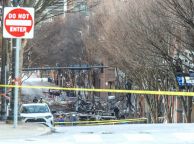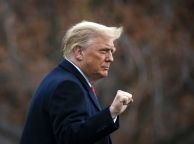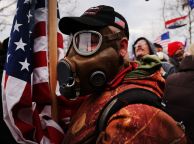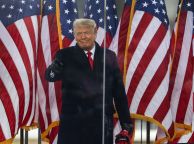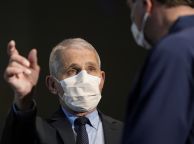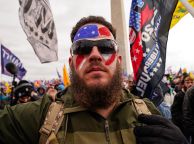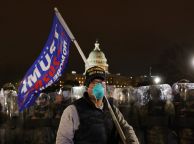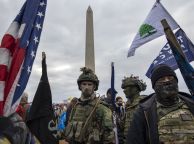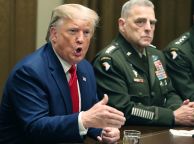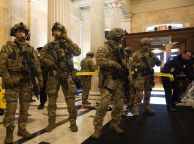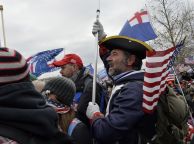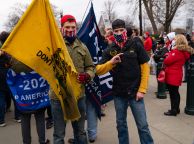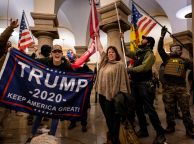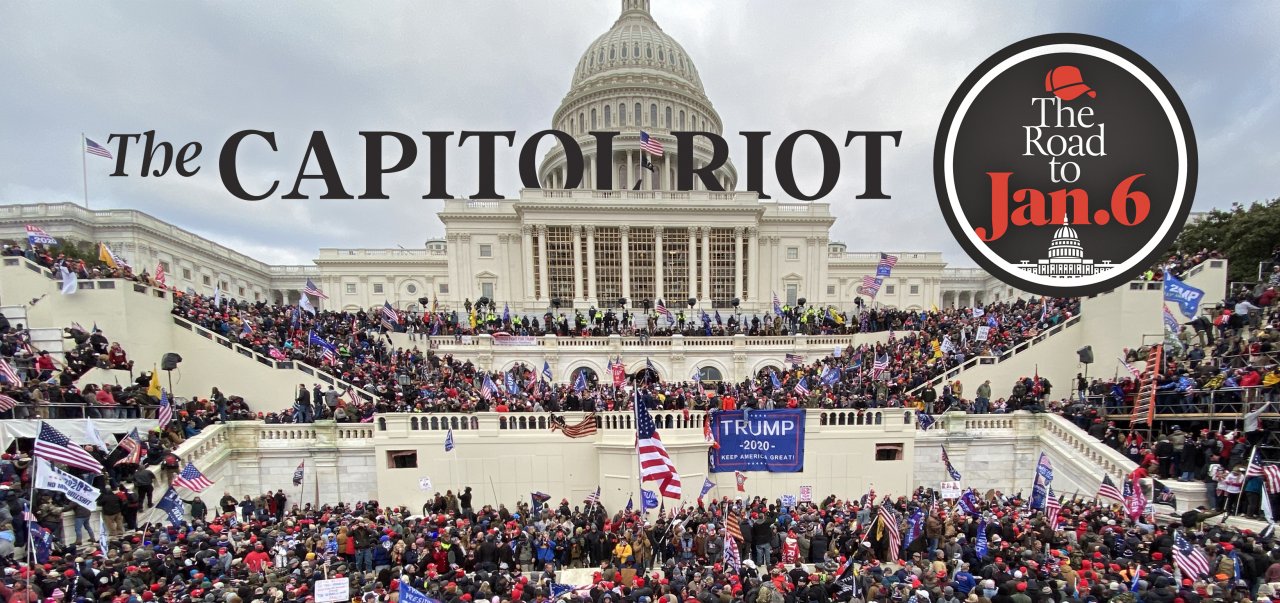
Donald Trump Must Have a Diabolical Plan, Officials Assumed. But There Was No Plan
In this daily series, Newsweek explores the steps that led to the January 6 Capitol Riot.
On November 29, President Donald Trump gave his first TV interview since the election, appearing on "Sunday Morning Futures" with Maria Bartiromo. The president spoke for 46 minutes over the phone and delivered an extended monologue, going through his litany of evidence of voter fraud, calling the election a "fraud" and "rigged."
Trump accused his own government of not doing enough. "This is total fraud. And how the FBI, and Department of Justice—I don't know, maybe they're involved—but how people are allowed to get away with this is stuff is unbelievable," he said, arguing that Justice was "missing in action."
As the interview ended, Trump implied that he was not going to concede even after Joe Biden entered the Oval Office. "It's not like you're going to change my mind," he said. "In other words, my mind will not change in six months."
The Washington Post described the interview as "baseless, conspiracy-fueled allegations about voter fraud."
"A long tirade, repeating over and over again his baseless claim there was widespread voter fraud in the election even as his team keeps losing legal cases," Slate reported.
"Outrageous assertions," said Raw Story.
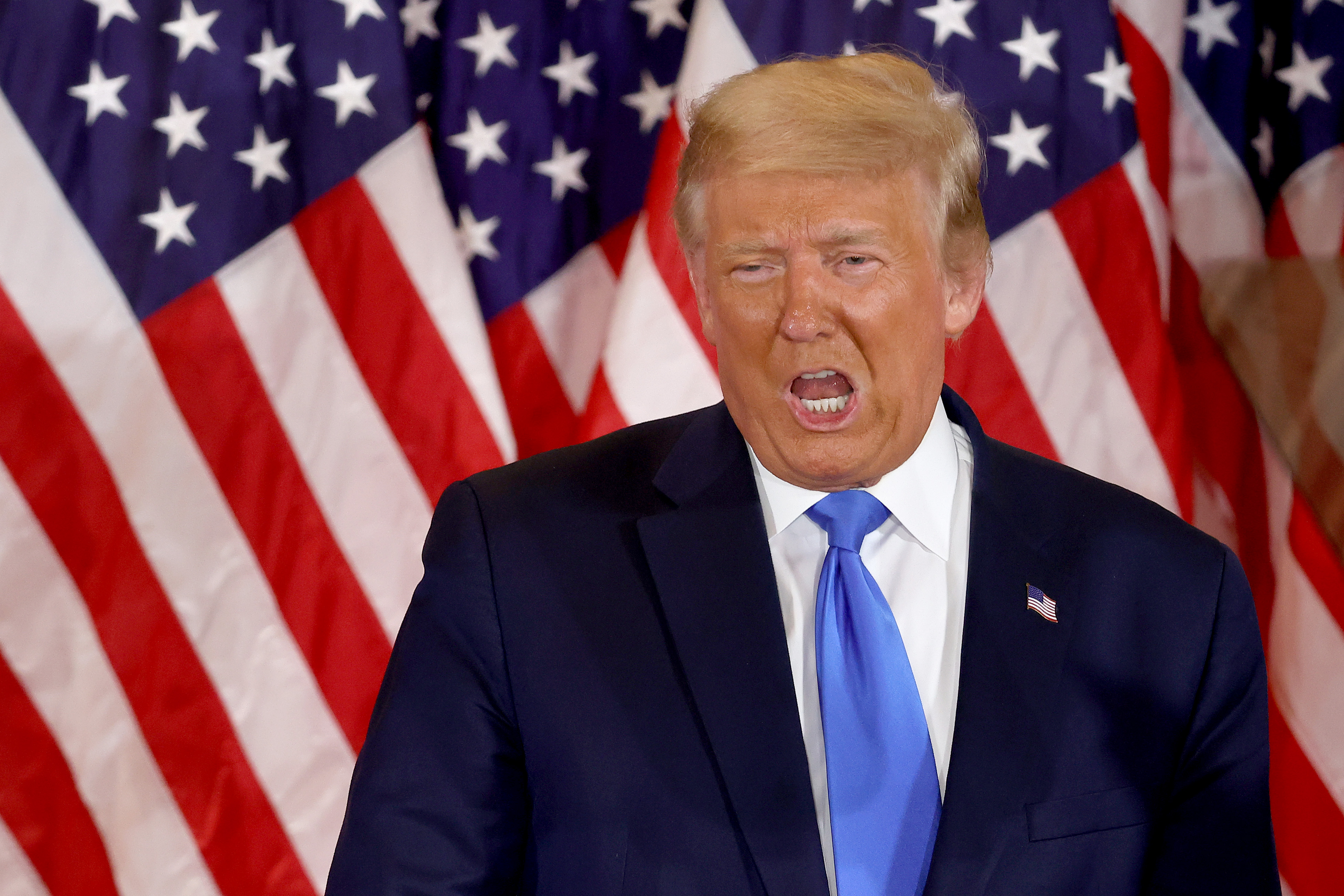
His facts and his arguments were false, the mainstream media universally said. He had lost lawsuit after lawsuit. He had failed to produce any evidence.
What Donald Trump might do—in not conceding, in rallying his base, in ignoring the votes—introduced an uncertainty in the minds of even his own national security cabinet members, who feared that he might try to coopt the military or even declare martial law. It looked to them that he must have a diabolical plan.
But there was no plan. Donald Trump the president was never fully engaged in policy—he never developed any passion to be the chief executive. He never sank his teeth into the details of anything, operating solely from his own feelings, defying over and over again the recommendations (and cautiousness) of his own experts and advisors. He had no interest in the necessary alliances or coalitions in the world or in domestic politics, the very relationships that might facilitate a coup.
The absence of a conventional president drove the orderly, results-oriented government crazy. Officials were both shocked and filled the void. The very government Trump loathed—the so-called deep state—gathered more power because of the way Trump ran the country.
His own Cabinet members, military advisors, credentialed experts and politicians all failed to understand that there was a wide gulf between the actual presidency and the man's theater of the presidency. The two personas weren't so divergent, if you stopped giving Donald Trump too much credit for any plan or any intention other than fueling the Donald Trump show.
Yet a vast number of Americans agreed with the great disruptor, either the man or the president: those who were themselves skeptics and haters of the elite, those who were disgruntled and unbelieving, not accepting the science, not accepting the numbers. The more the mainstream lampooned his 70-plus-million-strong voting bloc—that they were all uneducated idiots, survivalists and gun crazy extremists, white supremacists and militias, anti-vaxxers and even terrorists—the more the base solidified, if not around Donald Trump then around a complex and multi-dimensional rejection of all things Washington.
The mainstream convinced themselves that Donald Trump was leading, pulling the strings of this unruly and intransigent army.
But Trump wasn't leading anything. As the star of the show, Donald Trump had contempt for his own audience, privately calling his fans "the unwashed." He was uninterested in anything but adulation and the effect on his imaginary Neilson ratings, which continued to rise.

